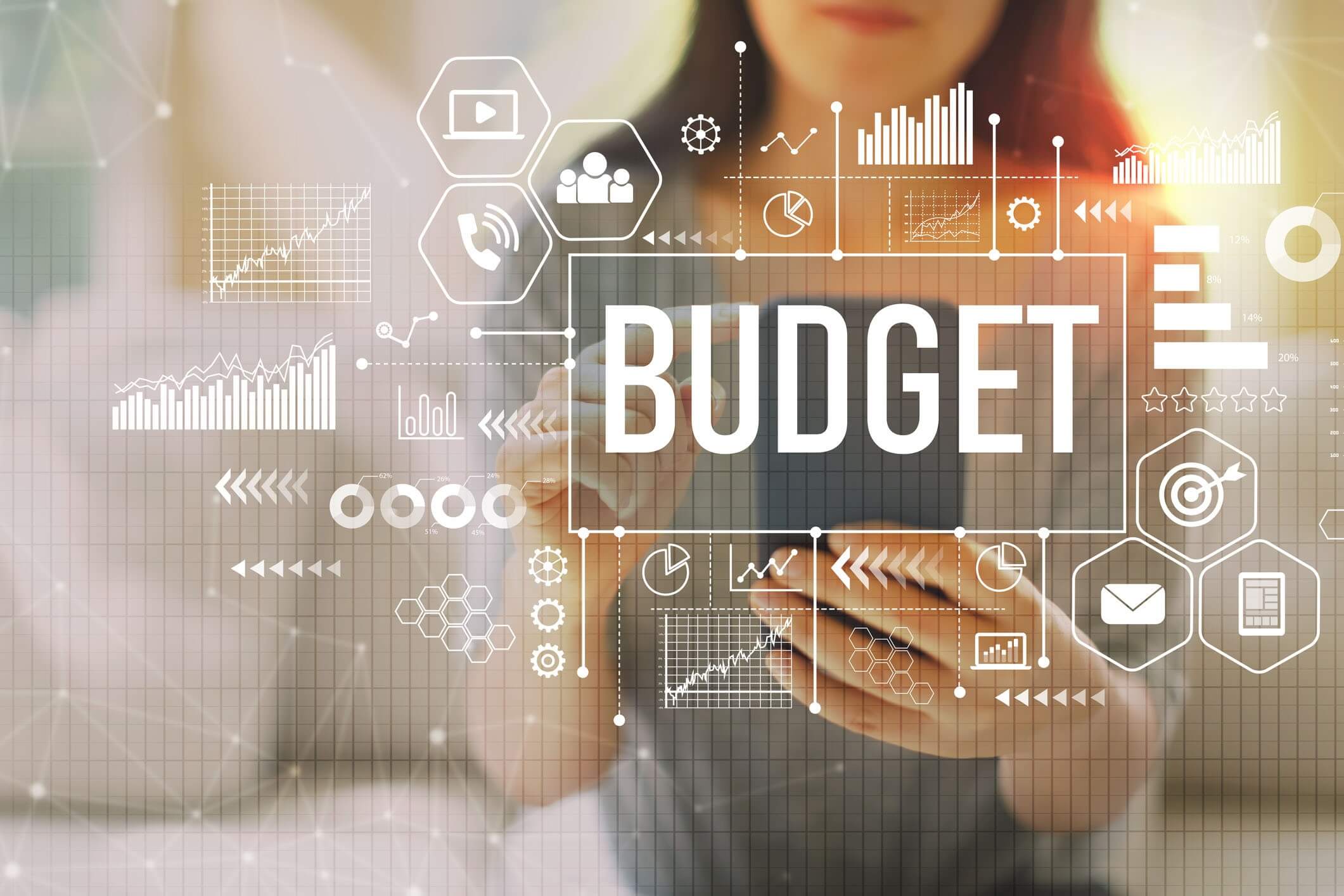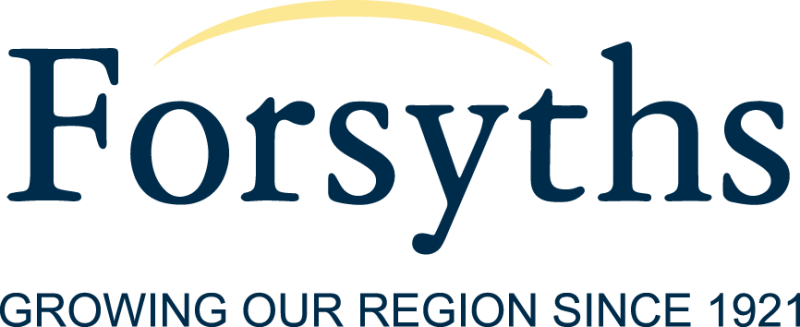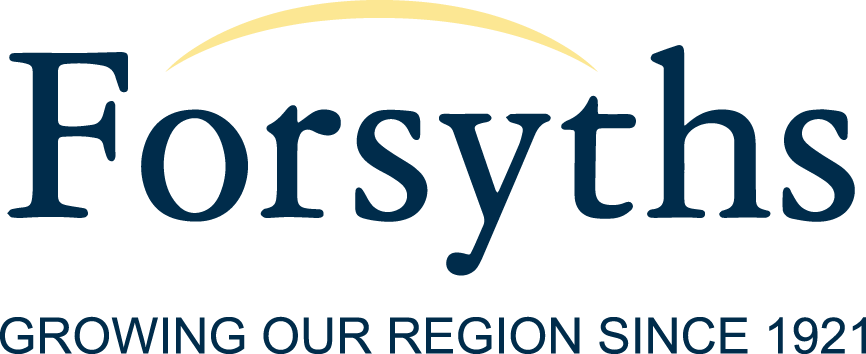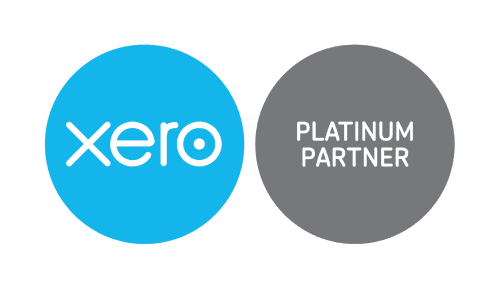
Federal Budget 2021-22
The Government has decided not to go down the austerity path, which will be a relief for many taxpayers and businesses.
Rather,
the Government has decided to put its foot on the accelerator with the hope that the growth in the economy over a long period of time will
help to pay down the debt that has been central to the Government’s response to COVID-19. On personal taxation, in an expected
announcement, the Government confirmed that it will extend the low and middle income tax offset (LMITO) beyond 2020-21 so that taxpayers
will continue to receive the tax offset (between $255 and $1,080) in the 2021-22 income year. In summary, the major tax-related measures
announced in the Budget included:
- Personal tax rates - no changes were made to personal tax rates, the Government having already brought forward the Stage 2 tax rates to 1 July 2020. The Stage 3 personal income tax cuts remain unchanged and will commence in 2024-25 as already legislated.
- LMITO retained for 2021-22 - the Government will retain the low and middle income tax offset for the 2021-22 income year. The LMITO provides a reduction in tax of up to $1,080.
- Temporary full expensing extended - the Government will extend the 2020-21 temporary full expensing measures for 12 months until 30 June 2023. This will allow eligible businesses with aggregated annual turnover or total income of less than $5 billion to deduct the full cost of eligible depreciable assets of any value, acquired from 7:30pm AEDT on 6 October 2020 and first used or installed ready for use by 30 June 2023.
- Loss carry-back extended - the loss years in respect of which an eligible company (aggregated annual turnover of up to $5 billion) can currently carry back a tax loss (2019-20, 2020-21 and 2021-22) will be extended to include the 2022-23 income year.
- Individual residency test reformed - the Government will replace the existing tests for the tax residency of individuals with a primary «bright line» test under which a person who is physically present in Australia for 183 days or more in any income year will be an Australian tax resident.
- Employee share schemes - the Government will remove the cessation of employment as a taxing point for the tax-deferred employee share schemes.
- ATO debt recovery - the AAT will be given the power to pause or modify ATO debt recovery action in relation to disputed debts of small businesses.
- Self-education expenses - $250 threshold to be removed.
Superannuation and related measures
The key superannuation and related measures announced in the Budget include:
- Superannuation contributions work test - to be repealed from 1 July 2022 for voluntary non-concessional and salary sacrificed contributions for those under age 75. However, the work test will still apply for personal deductible contributions by those aged 67-74.
- SMSF residency rules - to be relaxed by extending the central management and control test safe harbour from two to five years, and removing the active member test for both SMSFs and small APRA funds.
- Conversions of legacy income streams - individuals will be permitted to exit certain legacy retirement income stream products (excluding flexipensions or lifetime products in APRA-funds or public sector schemes), together with any associated reserves, for a two-year period. Any commuted reserves will not be counted towards an individual’s concessional contribution cap. Instead, they will be taxed as an assessable contribution for the fund.
- Super Guarantee $450 per month threshold - to be removed from 1 July 2022.
- Downsizer contributions - eligibility age to be lowered from 65 to 60.
- First Home Super Scheme - to be extended for withdrawals up to $50,000, plus some technical changes for tax and administration errors in applications.
- Victims of domestic violence - the Government will not proceed with its previous proposal to extend the early release of super to victims of family and domestic violence.
- Pension Loans Scheme - will be expanded to allow access up to two lump sums in any 12-month period (up to a total of 50% of the maximum annual Age Pension); together with a Government guarantee that “no negative equity” will apply. At the same time, the Budget did not contain any change to the legislated Super Guarantee rate increase from 9.5% to 10% for 2021-22.
- As previously announced, the Budget confirmed:
- 30% Digital Games Tax Offset - for eligible businesses that spend a minimum of $500,000 on qualifying Australian games expenditure (excluding gambling) from 1 July 2022.
- Intangible assets depreciation - option to selfassess effective life for certain intangible assets (eg intellectual property and in-house software).
- Brewers and distillers - the excise refund cap for small brewers and distillers will increase to $350,000 from 1 July 2021.
- Venture capital - a review of the venture capital tax concessions will be undertaken in 2021.
- Child care - increased subsidies from 1 July 2022.
Housing
- Government to help another 10,000 first-home buyers build a new home with a 5% deposit.
- Some 10,000 single parents to purchase a home with a 2% deposit.
- Increasing the amount that can be released under the First Home Super Saver Scheme to $50,000 from $30,000.
- To allow those aged over 60 to contribute up to $300,000 to their superannuation fund if they downsize their home, freeing up more housing stock for younger families.
Business
- Budget provides a further $2.1billion in targeted support for aviation, tourism, arts and international education providers. Tax relief for around 1,000 small brewers and distillers.
- Double its commitment to the “JobTrainer” fund to help create new apprenticeships and traineeships.
- Investing $1.2 billion to build digital infrastructure, skills and cyber security.
- Launching a new “patent box”, under which income earned from new patents developed in Australia will be taxed at a concessional 17% rate. The patent box will apply to the medical and biotech sectors.
Welfare
- To spend $13.2 billion over four years for National Disability Insurance Scheme.
- To commit $17.7 billion in new aged care funding.
- A $2.3 billion commitment to mental health care and suicide prevention.
- To commit $2 billion to fund preschools.
- To provide more than $19 billion in funding for universities in 2021-22.
The Government believes the 2021-22 Budget will consolidate the gains made since the last Budget in October 2020 and put the economy on
course for the unemployment rate to fall below 5%. To reach these targets the Government has committed $291 billion (or 14.7% of GDP) in
direct economic support for individuals, households and businesses since the onset of COVID-19. Some of the measures mentioned above are
fleshed out in the following pages.
Individuals
Low income offsets - LMITO retained for 2021-22
(no changes to individual tax rates)
The Government announced in the Budget that the low and middle income tax offset (LMITO) will continue to apply for the 2021-22 income year. Otherwise, the LMITO was legislated to only apply until the end of the 2020-21 income year, with the result that low-to-middle income earners would have seen their tax refunds in 2022 cut by between $255 and $1,080 (for incomes up to $90,000 but phasing out up to $126,000).
| Taxable income (TI) |
Amount of offset | |
| $0 – $37,000 | $255 | |
| $37,001 - $48,000 | $255 + ([TI – 37,000] × 7.5%) | |
| $48,001 - $90,000 | $1,080 | |
| $90,001 - 126,000 |
$1,080 – ([TI – 90,000] × 3%) | |
| $126,001 + | Nil | |
The amount of the LMITO is $255 for taxpayers with a taxable income of $37,000 or less. Between $37,000 and $48,000, the value of LMITO
increases at a rate of 7.5 cents per dollar to the maximum amount of $1,080. Taxpayers with taxable incomes from $48,000 to $90,000 are
eligible for the maximum LMITO of $1,080. From $90,001 to $126,000, LMITO phases out at a rate of 3 cents per dollar.
Consistent with current arrangements, the LMITO will be received on assessment after individuals lodge their tax returns for the 2021-22
income year.
Low income tax offset
The low income tax offset (LITO) will also continue to apply for 2021-22 income year. The LITO was intended to replace the former low income
and low and middle income tax offsets from 2022-23, but the new LITO was brought forward in the 2020 Budget to apply from the 2020-21
income year.
The maximum amount of the LITO is $700. The LITO will be withdrawn at a rate of 5 cents per dollar between taxable incomes of $37,500 and
$45,000 and then at a rate of 1.5 cents per dollar between taxable incomes of $45,000 and $66,667.
Self-education expenses: $250 threshold to be removed
The Government will remove the exclusion of the first $250 of deductions for prescribed courses of education. The first $250 of a
prescribed course of education expense is currently not deductible. The measure will have effect from the first income year after the date
of assent to the enabling legislation.
Primary 183-day test for individual tax residency
The Government will replace the existing tests for the tax residency of individuals with a primary “bright line” test under which a person
who is physically present in Australia for 183 days or more in any income year will be an Australian tax resident. Individuals who do not
meet the primary test will be subject to secondary tests that depend on a combination of physical presence and measurable, objective
criteria.
Medicare levy low-income thresholds for 2020-21
For the 2020-21 income year, the Medicare levy low-income threshold for singles will be increased to $23,226 (up from $22,801 for 2019-20).
For couples with no children, the family income threshold will be increased to $39,167 (up from $38,474 for 2019-20). The additional amount
of threshold for each dependent child or student will be increased to $3,597 (up from $3,533).
For single seniors and pensioners eligible for the seniors and pensioners tax offset (SAPTO), the Medicare levy low-income threshold will
be increased to $36,705 (up from $36,056 for 2019-20). The family threshold for seniors and pensioners will be increased to $51,094 (up
from $50,191), plus $3,597 for each dependent child or student.
The increased thresholds will apply to the 2020-21.
Child care subsidies to change 1 July 2022
The Budget confirmed that the Government will make an additional $1.7 billion investment in child care. The changes will commence on 1 July
2022 (ie not in the next financial year).
Commencing on 1 July 2022, the Government will:
- increase the child care subsidies available to families with more than one child aged 5 and under in child care by adding an additional 30 percentage point subsidy for every second and third child (stated to benefit around 250,000 families);
- remove the $10,560 cap on the Child Care Subsidy (stated to benefit around 18,000 families). The Treasurer states that, under the Government’s changes, a single parent on $65,500 with two children in five days of long day care who chooses to work a fifth day will be $71 a week better off compared to the current system. He further states that, under these changes, a family earning $110,000 a year will have the subsidy for their second child increase from 72% to 95%, and would be $95 per week better off for 4 days of care.
Business
Temporary full expensing: extended to 30 June 2023
The Government will extend the temporary full expensing measure until 30 June 2023. It was otherwise due to finish on 30 June 2022.
Other than the extended date, all other elements of temporary full expensing will remain unchanged. The measure allows eligible businesses
to deduct the full cost of eligible depreciating assets, as well as the full amount of the second element of cost. A business qualifies for
temporary full expensing if it is a small business (annual aggregated turnover under $10 million) or has an annual aggregated turnover
under $5 billion. Annual aggregated turnover is generally worked out on the same basis as for small businesses, except the threshold is $5
billion instead of $10 million.
Assets must be acquired from 7:30pm AEDT on 6 October 2020 and first used or installed ready for use by 30 June 2023.
Loss carry-back extended by one year
Under the temporary, COVID driven, restoration of the loss carry back provisions announced in the 2020- 21 Budget, an eligible company
(aggregated annual turnover of up to $5 billion) could carry back a tax loss for the 2019-20, 2020-21 or 2021-22 income years to offset tax
paid in the 2018-19 or later income years.
The Government will extend the eligible tax loss years to include the 2022-23 income year. Tax refunds resulting from loss carry back will
be available to companies when they lodge their 2020-21, 2021-22 and now 2022-23 tax returns.
This will help increase cash flow for businesses in future years and support companies that were profitable and paying tax but find
themselves in a loss position as a result of the COVID-19 pandemic. Temporary loss carryback also complements the temporary full expensing
measure by allowing more companies to take advantage of expensing, while it is available.
Intangible assets depreciation: option to self-assess effective life
The Budget confirmed that the income tax law will be amended to allow taxpayers to self-assess the effective life of certain intangible
assets (such as intellectual property and in-house software), rather than being required to use the effective life currently prescribed.
This amendment will apply to patents, registered designs, copyrights and in-house software for tax purposes. Taxpayers will be able to
bring deductions forward if they self-assess the assets as having a shorter effective life to the statutory life.
The self-assessment of effective lives will apply to eligible assets acquired following the completion of temporary full expensing
(introduced in the 2020-21 Budget - ie to assets acquired from 1 July 2023).
Extended consultation on corporate tax residency rules
In the 2020-21 Budget, the Government announced that it would amend the law to provide that a company that is incorporated offshore will be
treated as an Australian tax resident if it has a “significant economic connection to Australia”. This test will be satisfied where both
the company’s core commercial activities are undertaken in Australia and its central management and control is in Australia.
The Government has now announced that it will consult on broadening this amendment to trusts and corporate limited partnerships. The
Government will seek industry’s views as part of the consultation on the original corporate residency amendment.
The amendments, as they affect companies incorporated offshore, will have effect from the first income year after the date the enabling
legislation receives assent, but taxpayers will have the option of applying the new law from 15 March 2017 (the date on which the ATO
withdrew an earlier ruling). It not known whether the same arrangements will apply for the start date for trusts and corporate limited
partnerships should they be brought under the new rules.
Small business to be able to pause disputed ATO debt recovery
The Government will introduce legislation to allow small businesses to pause or modify ATO debt recovery action where the debt is being
disputed in the AAT. Specifically, the changes will allow the Small Business Taxation Division of the AAT to pause or modify any ATO debt
recovery actions – such as garnishee notices and the recovery of GIC or related penalties – until the underlying dispute is resolved by the
AAT.
This measure is intended to provide an “avenue” for small businesses to ensure they are not required to start paying a disputed debt until
the matter has been determined by the AAT.
Small business entities (including individuals carrying on a business) with an aggregated turnover of less than $10 million per year will
be eligible to use the option. The AAT will be required to “have regard to the integrity of the tax system” in deciding whether to pause or
modify the ATO’s debt recovery actions.
Superannuation
Superannuation contributions work test to be repealed from 1 July 2022
The superannuation contributions work test exemption will be repealed for voluntary non-concessional and salary sacrificed contributions
for those aged 67 to 74 from 1 July 2022.
As a result, individuals under age 75 will be allowed to make or receive non-concessional (including under the bring-forward rule) or
salary sacrifice contributions from 1 July 2022 without meeting the work test, subject to existing contribution caps. However, individuals
aged 67 to 74 years will still have to meet the work test to make personal deductible contributions.
Currently, individuals aged 67 to 74 years (ie under 75) can only make voluntary contributions (both concessional and non-concessional), or
receive contributions from their spouse, if they work at least 40 hours in any 30-day period in the financial year in which the
contributions are made (the “work test”). Note that the work test age threshold was increased from 65 to 67 from 1 July 2020 as part of the
2019-20 Budget.
The measure will have effect from the start of the first financial year after Royal Assent of the enabling legislation, which the
Government expects to have occurred prior to 1 July 2022.
Non-concessional contributions and bring forward
The Government confirmed that individuals under age 75 will be able to access the non-concessional bring forward arrangement (ie three
times the annual non-concessional cap over three years), subject to meeting the relevant eligibility criteria. However, note that the
Government is still yet to legislate its 2019-20 Budget proposal to extend the bring forward age limit so that anyone under age 67 can
access the bring-forward rule from 1 July 2020. The proposed legislation for this is yet to be passed by the Senate.
The Government also noted that the existing restriction on non-concessional contributions will continue to apply for people with total
superannuation balances above $1.6m ($1.7m from 2021-22).
SMSF residency requirements to be relaxed
The residency requirements for self-managed superannuation funds (SMSFs) and small APRA-regulated funds (SAFs) will be relaxed by extending
the central management and control test safe harbour from two to five years for SMSFs, and removing the active member test for both fund
types.
The Government said the proposed changes to the residency requirements will allow SMSF and SAF members to continue to contribute to their
superannuation fund whilst temporarily overseas, ensuring parity with members of large APRA-regulated funds. It will also provide SMSF and
SAF members with flexibility to keep and continue to contribute to their preferred fund while undertaking overseas work and education.
The measure will have effect from the start of the first financial year after Royal Assent of the enabling legislation, which the
Government expects to have occurred prior to 1 July 2022.
Super Guarantee $450 per month threshold to be removed
The Superannuation Guarantee $450 per month eligibility threshold will be removed from 1 July 2022. As a result, employers will be required to make quarterly Super Guarantee contributions on behalf of such low income employees earning less than $450 per month (unless another Super Guarantee exemption applies). Note that previously legislated increases to the SG rate will not change.
SG opt-out for high-income earners
The increase in the SG rate to 10% from 1 July 2021 also means that the SG opt-out income threshold will increase to $275,000 from 1 July 2021 (up from $263,157). High-income earners with multiple employers can opt-out of the SG regime in respect of an employer to avoid unintentionally breaching the concessional contributions cap ($27,500 from 2021-22). Therefore, the SG opt-out threshold from 1 July 2021 will be $275,000 ($27,500 divided by 0.10).
Downsizer contributions eligibility age reduced to 60
The minimum eligibility age to make downsizer contributions into superannuation will be lowered to age 60 (down from age 65) from 1 July
2022.
The proposed reduction in the eligibility age will mean that individuals aged 60 or over can make an additional non-concessional
contribution of up to $300,000 from the proceeds of selling their home. Either the individual or their spouse must have owned the home for
10 years.
The maximum downsizer contribution is $300,000 per contributor (ie $600,000 for a couple), although the entire contribution must come from
the capital proceeds of the sale price. As under the current rules, a downsizer contribution must be made within 90 days after the home
changes ownership (generally the date of settlement).
Govt Pension Loans Scheme - access to lump sums; no negative equity guarantee
- The Government will provide $21.2 million over four years from 2021-22 to improve the uptake of its Pension Loans Scheme (PLS) by:
- allowing participants to access up to two lump sum advances in any 12-month period, up to a total value of 50% of the maximum annual rate of the Age Pension; and
- introducing a No Negative Equity Guarantee (see below) so borrowers will not have to repay more than the market value of their property.
No Negative Equity Guarantee
From 1 July 2022, the Government will introduce a No Negative Equity Guarantee for PLS loans and allow people access to a capped advance
payment in the form of a lump sum.
A No Negative Equity Guarantee will mean that borrowers under the PLS, or their estate, will not owe more than the market value of their
property, in the rare circumstances where their accrued PLS debt exceeds their property value. This brings the PLS in line with private
sector reverse mortgages.
Immediate access to lump sums under the PLS
Eligible people will be able to receive a maximum lump sum advance payment equal to 50% of the maximum Age Pension. Based on current Age
Pension rates, this is around $12,385 per year for singles, while couples combined could receive around $18,670.
A maximum of two advances totalling up to the cap amount will be permitted in a year, for those who do not want to take an advance in one
instalment. The measure will take effect from 1 July 2022.
Housing
First Home Super Scheme to be extended for withdrawals up to $50,000
The Budget confirmed that the maximum amount of voluntary superannuation contributions that can be released under the First Home Super
Saver (FHSS) scheme will be increased from $30,000 to $50,000.
Voluntary contributions made from 1 July 2017 up to the existing limit of $15,000 per year will count towards the total amount able to be
released (which includes voluntary concessional and non-concessional contributions).
Currently, the FHSS scheme allows for future voluntary contributions up to $15,000 per year (and $30,000 in total) to be withdrawn for a
first home purchase. To be eligible, a person must be 18 years or over, have not used the FHSS scheme before and have never owned real
property in Australia. Withdrawals of eligible FHSS contributions (and associated earnings) are taxed at the individual’s marginal rate
less a 30% tax offset. Effectively, the scheme provides a 15% tax saving on money channelled via super for a first home purchase.
Home Guarantees for single parents and new homes
Other first home buyer measures, announced as part of the Budget, include:
- New Home Guarantee - to be expanded for a second year, providing an additional 10,000 places in 2021-22. First home buyers seeking to build a new home or purchase a newly built home will be able to do so with a deposit of as little as 5%; and
- Family Home Guarantee for single parents - to be established with 10,000 guarantees made available over 4 years to single parents with dependants. The Family Home Guarantee allows them to purchase a home sooner with a deposit of as little as 2%.



